-
Eddontenajon Lake
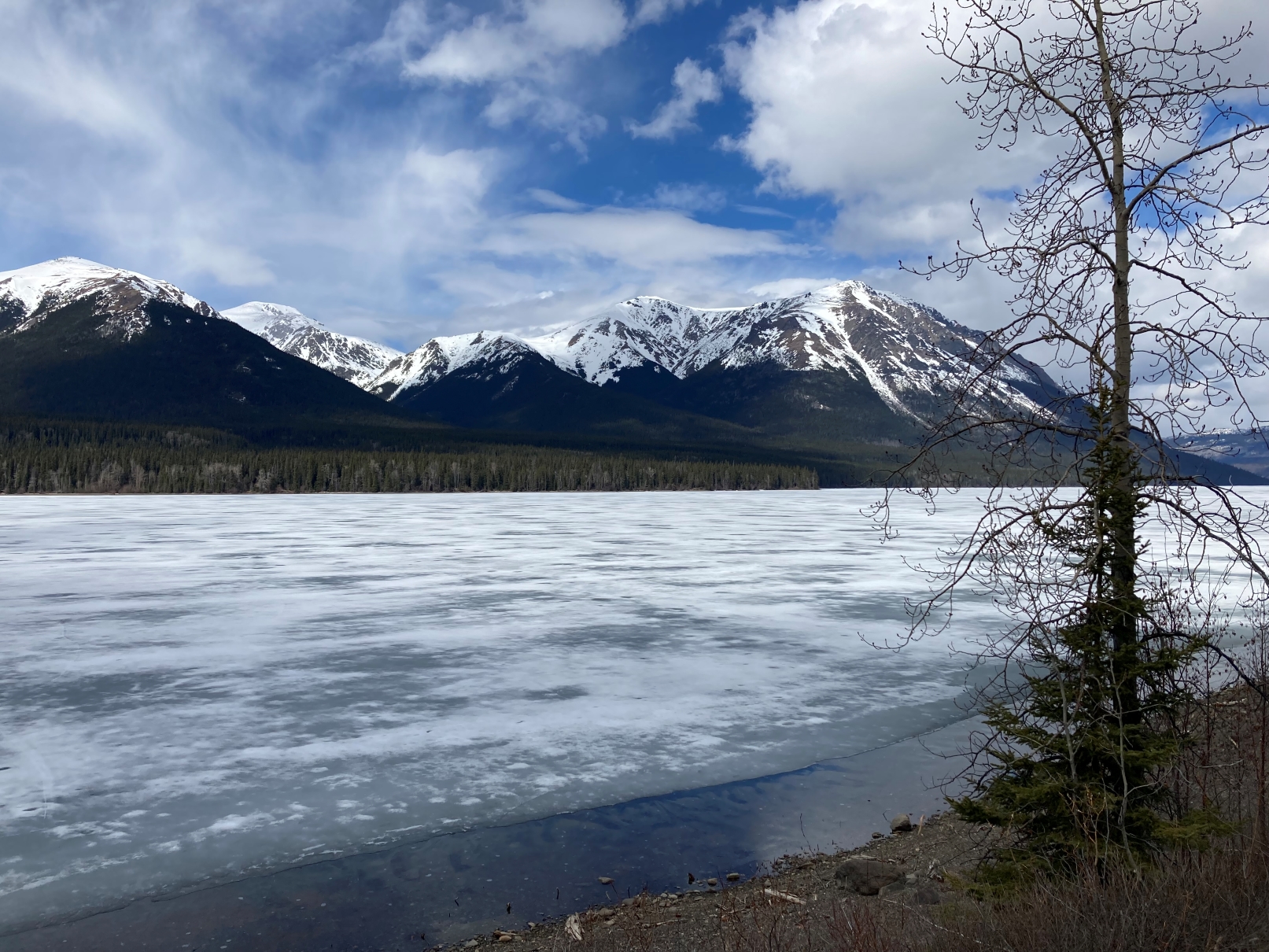 Eddontenajon Lake as seen from Highway 37, Northern B.C.
Eddontenajon Lake as seen from Highway 37, Northern B.C.It is Red Dress Day here in Canada. A time to remember the history of missing and murdered Indigenous women, girls, and 2SLGBTQI+ people. It has been six years since the publication of a report resulting from a national inquiry on the subject, containing over two hundred recommendations to address systemic mistreatment of First Nations, Inuit and Métis peoples, and to improve their safety through more proactive approaches. The nation has been slow to act, implementing only two of those recommendations to date.
I must admit, much of what I know about Indigenous history, its associated legacy, and ongoing racism towards Indigenous people was learned in my adulthood (at university and through my professional life). Things may gradually be improving, but when I was in elementary and secondary school, we were taught very sanitized lessons of colonial conquests following European contact. At best, we were provided a cursory overview of the darkest chapters, never long enough to truly comprehend their meaning or to begin to understand their modern offshoots.
In that respect, I did not even know what Red Dress Day really was, or how it was marked, until I joined an Indigenous health organization in 2021. During that experience, stories found their way through the generations and their keepers to my ears, as I travelled and worked across rural and remote Northern B.C. communities. Like the glaciers atop the tallest mountains or overwintering fires, those memories persevered through arduous conditions. In a way, immutable. Imbuing in their carriers strength to continue the fight for acknowledgment, restoration, and justice.
-
Rural Ugandan Brew
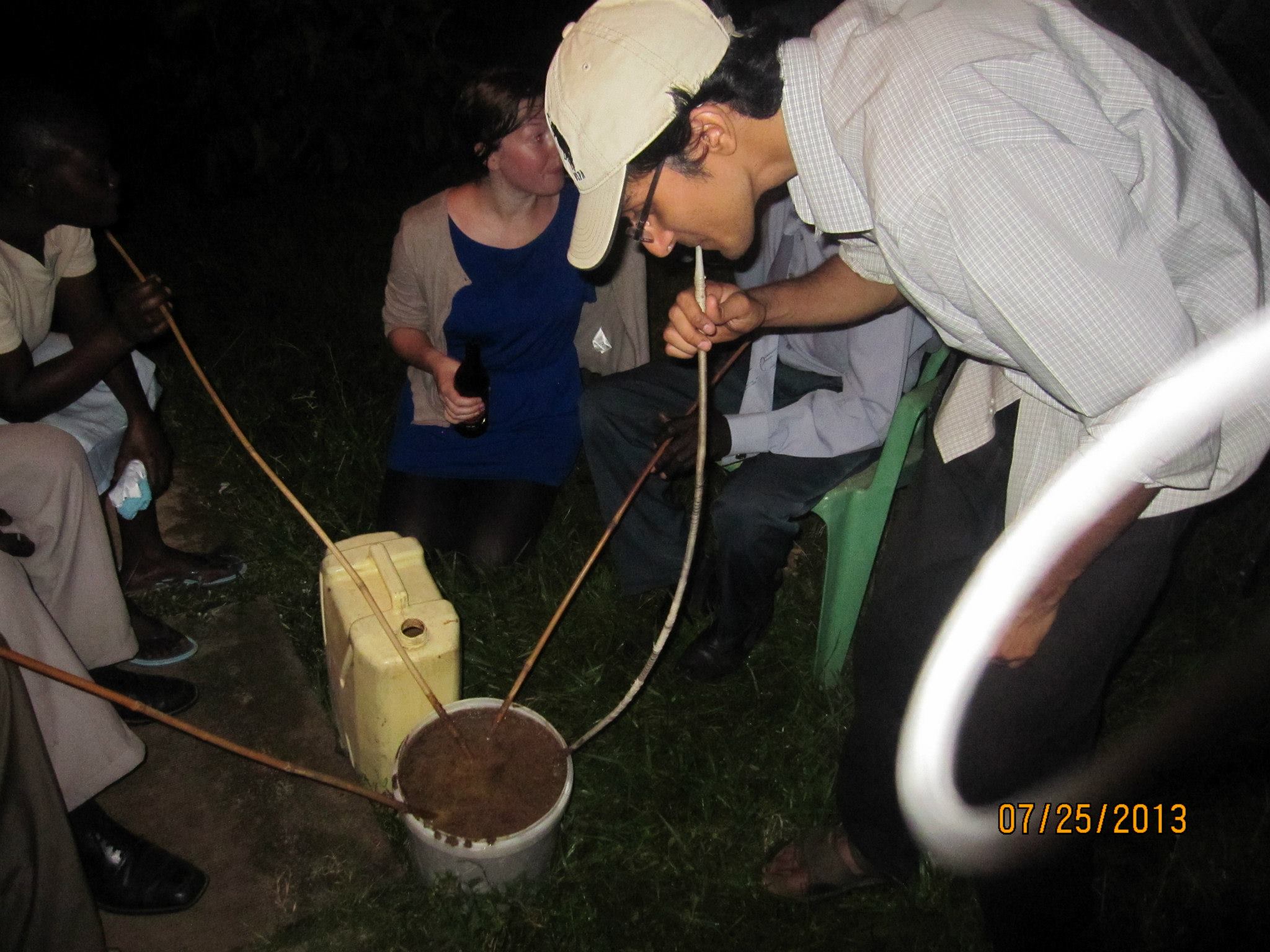 Credit: Jenny Z.
Credit: Jenny Z.A moment from a late night in the summer of 2013, just outside (the unofficially but affectionately named) “Mzungu House”. A small hut mere yards away from the Busolwe hospital and temporary residence to two doctors-in-training from Aarhus.
Busolwe, a village near Mbale in Eastern Uganda, was my home for four months while I participated in an international learning exchange (primarily to support rural literacy initiatives and to learn from a community of local leaders who were passionate about instilling in youth a culture of reading and writing).
My colleague and I had been invited by our Danish friends to an evening of shared meals and stories, the latter not least a chance to debrief our most eventful days spent in Uganda. We rarely had a chance to connect with them, the only other foreigners who were staying in the remote village alongside us for many months. They worked long hours at the hospital, while our time was dedicated to the local library and schools, all spread out over a great distance.
On this weekend night, we emerged much later than anticipated. As we walked into the field and took in the fresh air, a group of locals sitting in a circle motioned to us. Each held a thin pipe with one end dipped into a large bucket on the ground. They asked us to join them as they drank from their lengthy wooden straws. So we found ourselves reveling outdoors, starlight replacing candlelight.
-
Echoes in the Night
Credit: melodysheep a.k.a. John D. BoswellIn the basement of the Koerner Library at the University of British Columbia, there exists a large collection of microfilms. Among them, reproductions of print publications dating back to the mid-eighteenth century. Perhaps earlier.
The types of materials that would come in handy, say, if you were asked to compile a dialectical montage of the history of Stanley Park. A mix of phantasmagorical edifices and natural forests standing adjacent to an industrial port, a microcosm representing landscapes long-since overrun by urbanization.
Facsimiles that could also assist with the study of archives, say of weekly magazines, in order to craft a narrative of their evolving purpose over time. A beguiling exercise of evaluating many ships of Theseus as they undergo fundamental shifts in response to changing media ecosystems.
Or maybe, if the two assignments above were found to be too cumbersome or tiring, the microfilms could offer an escape. Through a wormhole of irrelevance and fun that would carry you from the afternoon to late evening. For example, from a 1905 editorial considering Martian life forms (floating down canals, as they were at the time) to an in-depth analysis of how affordability of the television may result in humanity’s downfall.
-
Sugarcane
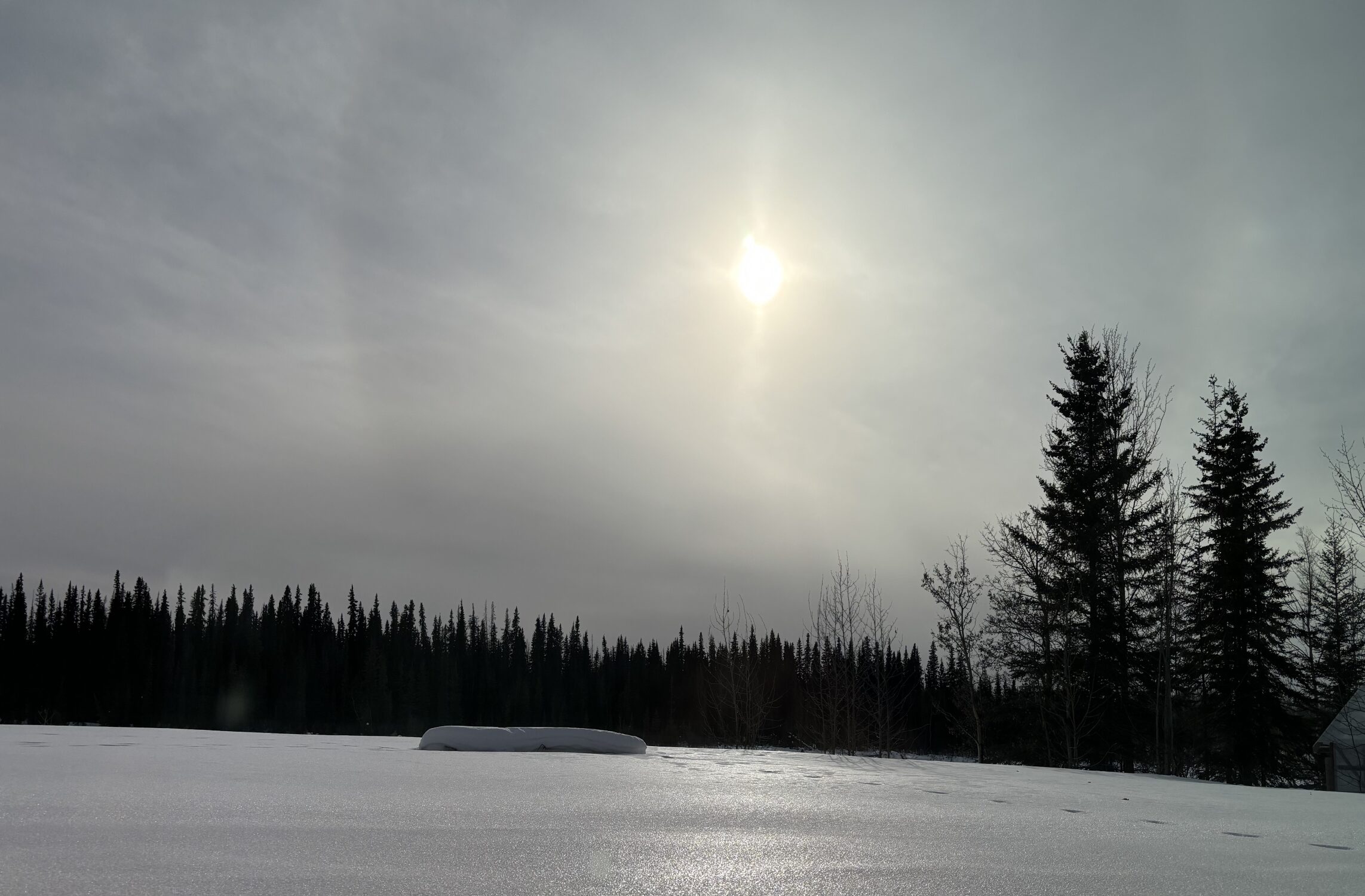 A solar halo above Lower Post, BC. Home to the community of Daylu Dena Council, and the historical site of the Lower Post Residential School.
A solar halo above Lower Post, BC. Home to the community of Daylu Dena Council, and the historical site of the Lower Post Residential School.One evening during the Fall of 2017, a group of Red Cross staff, volunteers, and support personnel sat together in a large circle. They were debriefing, disclosing difficult reflections within an eerily empty reception center. The site of general chaos and noise only a few hours ago, the location – a quarter of a mall under renovation temporarily repurposed into a hall for evacuee support – held a taunting peace.
The group was not, however, discussing the fires. They were not talking about their empathy bandwidth (the constant strain of taking on the evacuees’ trauma), or the stress of managing the response, or even their fatigue after another long day with little rest. In fact, the workday had been a shorter one. It had ended early to allow everyone to participate in a mental health workshop. One after another, each person held a talking stick, answering open prompts on personal or professional pain points. In each other and through this exercise, they found some strength, validation, and motivation.
One individual told the story of how she had doubted herself constantly. How, despite her proven capability and resilience, she struggled with truly believing in herself. How she felt that everyone who held her up was doing twice the work. How she felt inadequate. A surprising revelation to most of us as she was our go-to for some of the toughest cases; a knowledgeable, calm presence who was able to make the appropriate connections and decisions without hesitation. Compassion personified.
The underlying reason for these undying feelings of insufficiency, she understood, were intergenerational trauma. She had barely escaped the residential school system in her youth. Her mother had already lost a child to the system when the RCMP knocked at her door for a second time. Mom hid her away and told the police there was no one to surrender. They searched the home, failed to find any minors, and left. As a result, she was able to grow up free from the traumas of residential schools, unlike her parents. Unfortunately, she continued to carry some of the insecurities and fears that her family held – about themselves, institutions, and their communities.
-
On 2024’s Palette
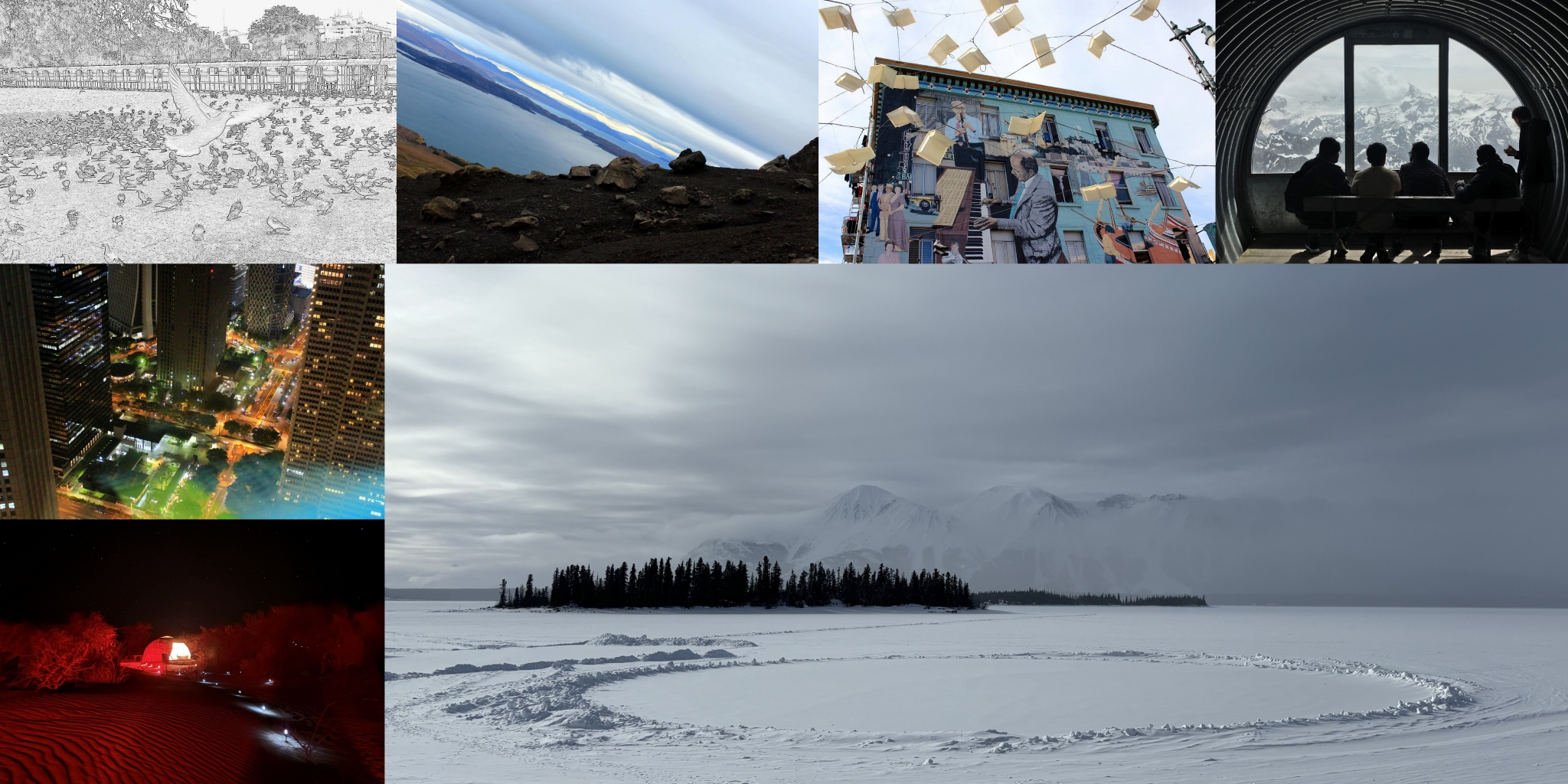
Something a little different to wrap up the orbit.
In Difference turns 1 next week. It was the first few days of January last year when I began setting up this space. Researching self-hosting options, reintroducing myself to the WordPress platform, adjusting code, and attempting to conjure inspiration. Funny what a temporary surplus of time and tranquility will manifest.
The aim was to add a habit of writing into the repertoire. The levels of originality or depth were always going to fluctuate, but I had hoped to establish a rhythm that could spur on other creative impulses.
At this juncture, I can admit to the patchy nature of the experiment. Work, travel, and other commitments have eaten into the hours budgeted towards introspection. Yet even the small amount of catharsis afforded by this exercise has been enough; there is plenty foundational to build on.
With that in mind, I was looking back through the year’s posts and noticed how often I shared images with little to no information. Though they were connected to the thoughts being relayed, it was not always clear how they informed the substance of the piece. The pictures, captured or constructed, felt ornamental. So, I thought I would take this opportunity to add a little more context to where they came from or why they were attached to the reflections.
A chance to resurface the musings with some additional insight. See the collection below; I hope it is somewhat illuminating.
-
Imagine: Dragons
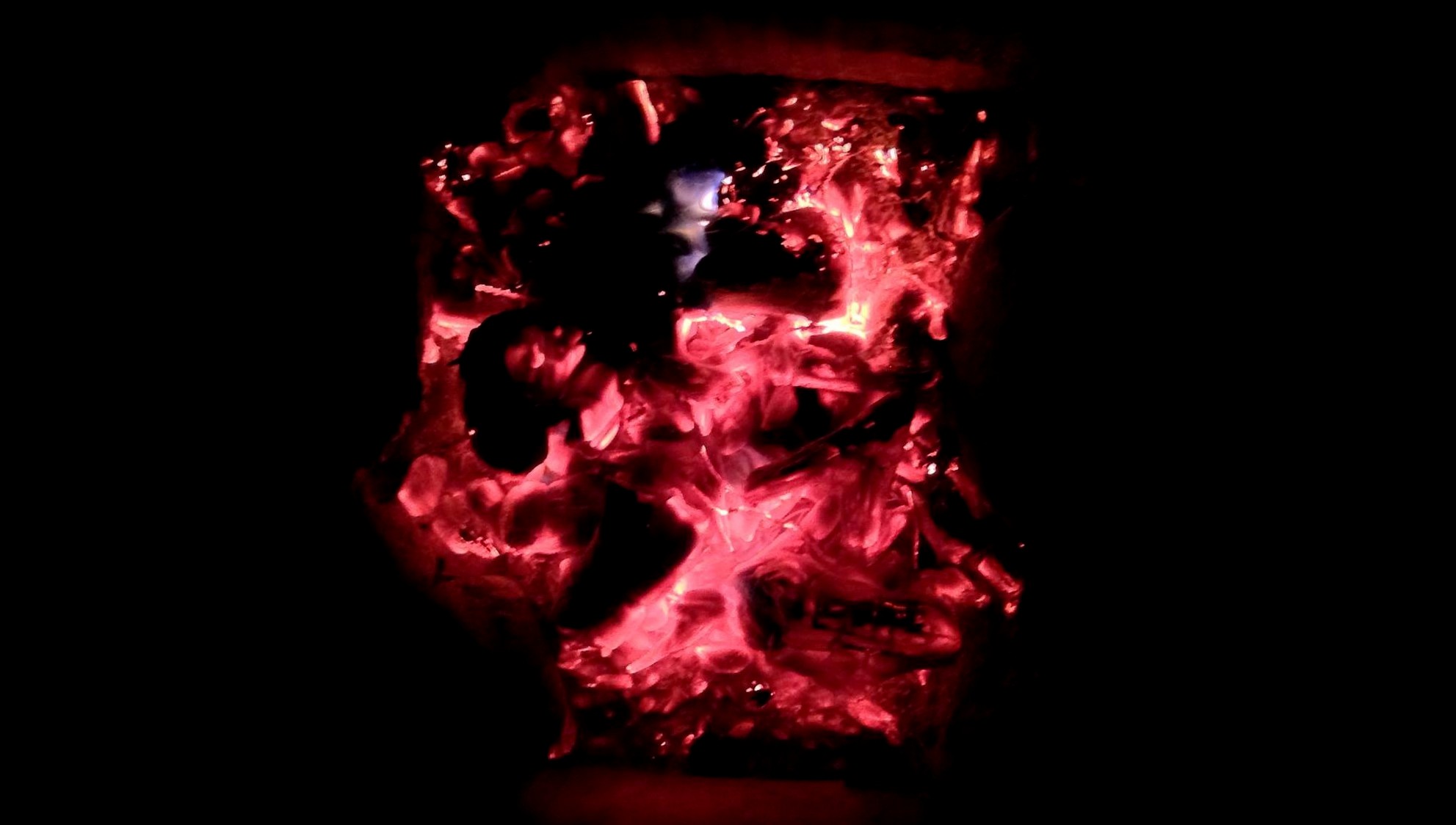 Campfire embers inviting interpretation
Campfire embers inviting interpretationSparkling shards, brittle but imposing, adorn a town succumbing to darkness. A deep freeze has arrived in Prince George; the translucent icicles emanating white even as the night settles. The snow’s shimmer a mirror to the frost lining trees, structures, and vehicles dashing between.
I am glad during times like these that I can hunker down and have my imagination whisked to warmer locales. Today marks the start of a highly anticipated Test series between Australia and India. That is where my eyes will be for the next several days: Perth under a scorching sun, as cricketers wage war. Many modern icons among them, amidst swan songs and battling dragons. Media circuses, pitch demons, and the political context of a sport losing the plot. A place in the world championship on the line as legacies are writ atop a twenty-two-yard-long parchment.
Speaking of dragons, there is somewhere else my mind travels today. A fond memory, of a children’s story read in adulthood, stirring joy.
-
Montage
A compilation of some moments from our trip to Chile in September, set to “Montage” by Andy Hull and Robert McDowell. There were many videos I could not include; consider this the most fleeting of glimpses.
-
Enclosure
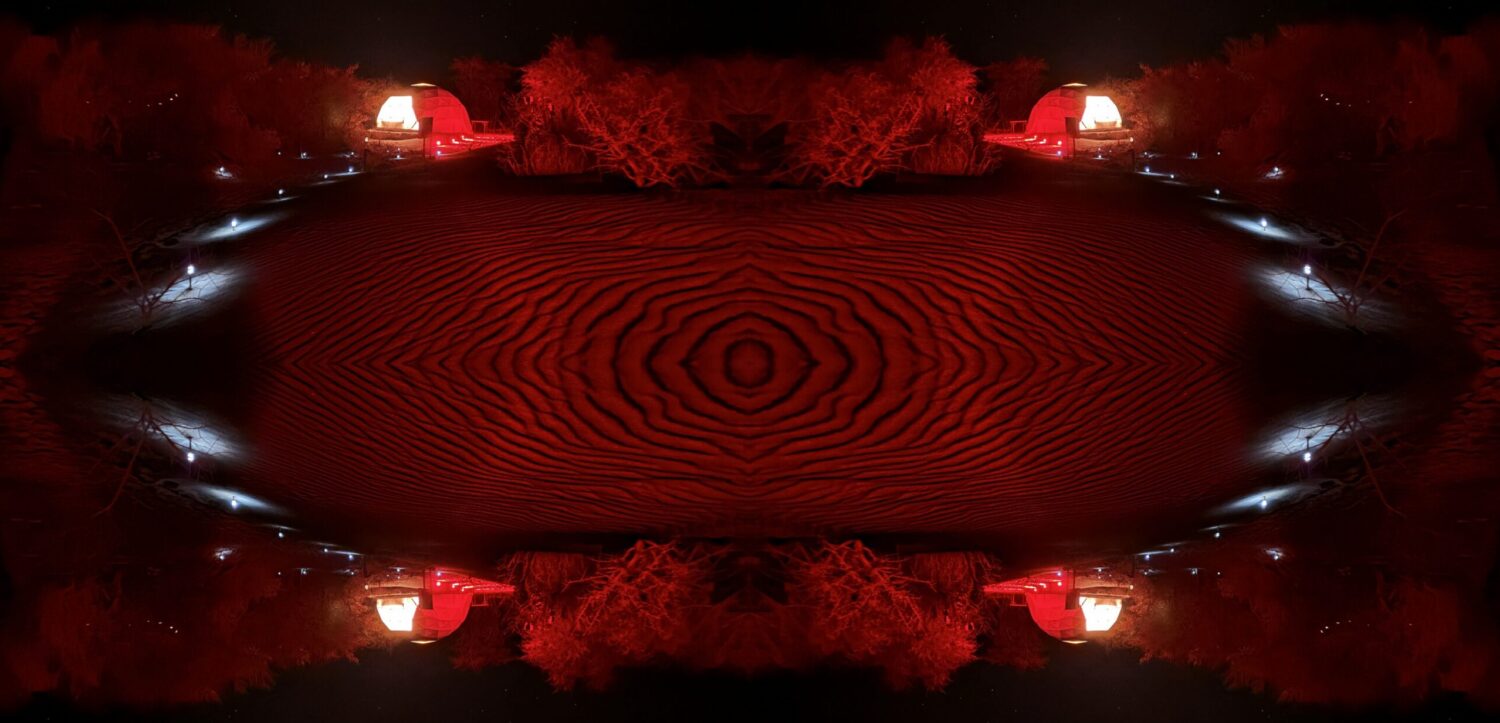
The evergreen grass of Rapa Nui, sterile sands of the Atacama, element-battered mud of Patagonia, and coarse gravel of Arica and Parinacota. Particulate matter, dried and encrusted on shoe soles, collected and carried four hundredths of a light-second – a quarter planet – away. Memory fresh and developing.
Granules slowly becoming indistinguishable from the rest, destined to disappear with time.
– / – / –
The Chilean jaunt, undertaken this past month, was a bittersweet affair. The country has plenty of character, charm, and beauty. Its capital was bustling, more so than usual as the nation approached and celebrated its anniversary of independence. Folk dancers paraded the streets, unions led multiple protests, and students on field trips could be found at every cultural site. All under the watchful eyes of the pervasive police, lining major intersections in their conspicuous green and white sedans. The remote island of Rapa Nui gifted us two days of perfect weather sandwiched between heavy rains and fog. Plenty of time to gaze upon the myth-inducing Moai and stroll upon its rocky shores as the Pacific crashed relentlessly into jagged outcrops. Of course, the Atacama Desert lived up to the hype. Sand dunes, salt flats, and scintillating starlight to enliven the soul. Patagonia’s jewel – the Torres Del Paine park – was another highlight. The wind constantly threatened to lift us off our feet as condors and caracaras glided the currents. Snow-capped peaks, glacial lakes, novel flora – all in abundance. Finally, Arica and Parinacota offered a repose; slower days seaside watching the waves or driving around Lauca, looking up at volcanos or down at lagoons as alpacas, vicunas, guanacos, and llamas dotted the landscape.
Why bittersweet? The experience was somewhat spoiled by an illness I caught a few days into the trip, which only worsened throughout. I did not fully recover until a few days ago. It meant a slower pace, lack of appetite, and diminished opportunity to fully engage with my companions. But it did afford me some time alone to contemplate things.
-
Skye: A Gallery

You wake up on a train, somewhere in Northern Scotland, headed westward to the Hebrides.
You gaze out the glass window, just one of many lenses that are filtering the view. The fog, rain, snow, and swathes of sunlight intermingle, showering mystery, color, calm, and turbulence onto the environment in equal measure.
Familiar structures and dwellings fade and vanish as the world grows colder with time. The vistas become less vibrant. They slowly evolve into eternal photographs, unmoving environments etched into the earth. As still and resilient as the riverside ice, refusing to yield, content in placidity.
The hues become duller and more nebulous as the train winds its way through mountainous terrain, a steel snake deftly navigating valleys, avoiding burial by the elements. Bright blues and greens of milder climates are replaced with dirtied whites, greys, and browns of forgotten lands.
But this is where you begin to perceive it – a tricksy phenomenon afoot. Hints of something hidden behind these bare tundras.
-
Embers of Empire

Allow us royal subjects, commonwealth citizens governed by neocolonial pressures, we who have lived through dying embers of empire and observed the revolving door of mediocrity in British politics over the last decade or so, our quiet judgments and tempered schadenfreude. With the approval of an ailing monarch, the Conservatives will finally find their way out of power in the next few days. Their replacements will wonder where to start; this election is not exactly a mandate-providing affirmation, rather a denouncement of what came before. The public did not chase an inspiring vision; they voted for the hope of basic competence. The unfortunate truth – a bittersweet relish – that we from afar can savor in a twisted way, is that there will be brevity in this grand feeling of change. A new team dominating the game does not necessarily change the sport being played.
– / – / –
A kingdom voted. Kingdoms tend not to hold too many consequential votes. Democracy is not a requirement under divinely blessed royalty. But this kingdom is United, you see. A constitutional monarchy, they say. It delegates freedom under colonial architecture; a parliament hardly parochial. Its subjects are free to exercise their voice – an inside voice, mind you. Nothing loud enough to disturb the foundations of those lovely palaces and their inhabitants, or a growing body of unelected nobility who specialize in slowing down legislation already outpaced by the most sluggish of snails.
This is not the land of brave trial-and-error politics, but one of rehashing failed ideas given cosmetic treatments. A country that has offered largely static views on economic and foreign policy for over four decades. In a time when large blocs of nations grappled with the right combinations of Keynesian, Marxist, or Monetarist ideas, the UK tried austerity… and nothing else. A reminder that the last Labour governments championed the Iraq war and continued the Tory project of privatizing health services to undermine the NHS. I wonder how long it has been since a party in power was actually sympathetic, in action, to the marginalized or the working class. And how much sympathy they elicited from the House of Lords or head of state.
But this may be a reflection of the populace. At least, the politically active, participatory factions. This foreigner and brief interloper observed a small ‘c’ conservative political landscape. People of all ages within the conglomerate territory appear risk-averse in their volitions. Whether it was through apathy, complacency, or fear of novel approaches. Even in Edinburgh – filled with youth and committed to a more liberal republican future – one could not escape the feeling that there were certain red lines that could not be crossed. Jeremy Corbyn’s name was all it took to send people into fits of anger, no attention paid to the myriads of scandals that followed those actually in power. The press system, dominated by tabloids, periodicals, and punditry apple-skin-shallow, reduced everything to soundbites and everyone to caricatures. Complex narratives were impossible to find in the mainstream.